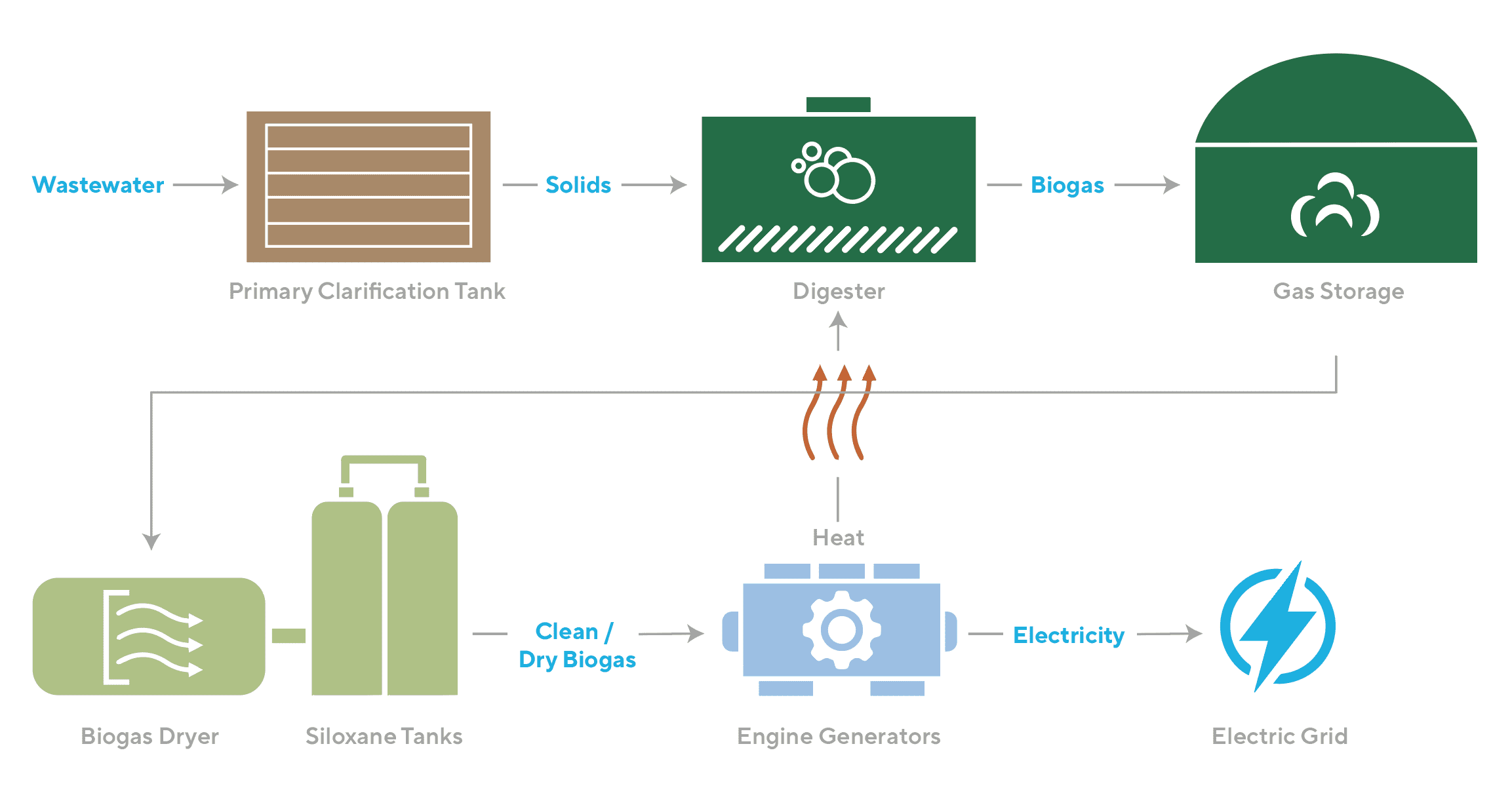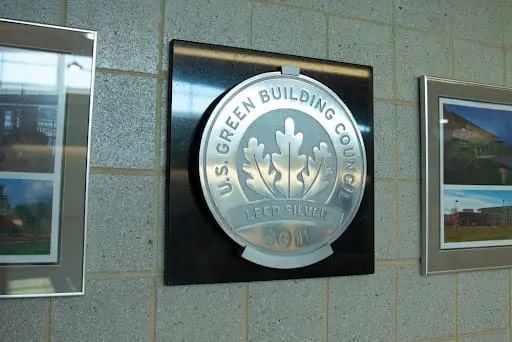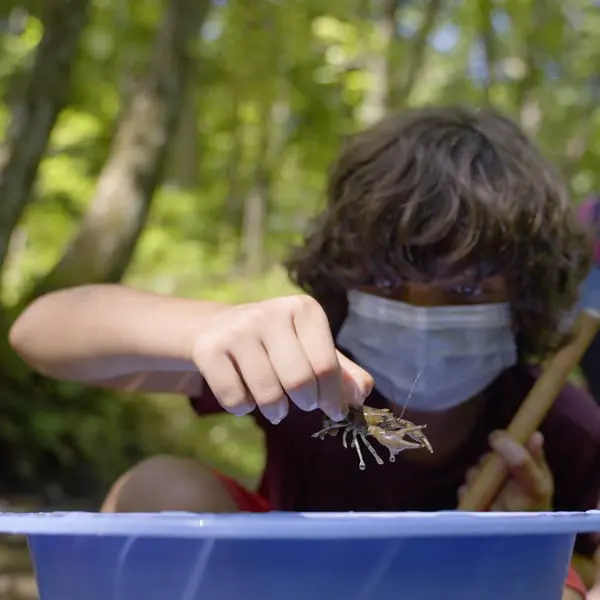Power Cogeneration is Just One of the Ways the Men and Women of Four Rivers Lessen our Organization’s Carbon Footprint.
In addition to the primary output of treated water and the secondary output of beneficial biosolids for fertilizer, Four Rivers Sanitation Authority also pursues several other processes and standards that further benefit the community and environment. These efforts all improve energy efficiency and so enhance the overall positive impact our operations have on Sustainability.
The most technically complex and innovative process we pursue towards improving sustainability is called “cogeneration.” Cogeneration is the simultaneous production of electricity and heat in specialized generators that burn the biogas (methane) produced by the anaerobic digesters. These generators may provide anywhere between 50-70% of total required electricity for the operation of the entire plant, helping reduce both our carbon footprint and our customers’ bills. The residual heat from the engines is sent through heated water to keep the digesters at their optimal temperature.


At Four Rivers, we are immensely proud of the Graceffa Administration Building – and not just because the lobby features a huge freshwater aquarium that replicates the regional ecosystem, or because the elegant, airy architecture illuminates our working space with lots of natural light.

After the design and construction was completed, the 40,000 square foot building was awarded Leadership in Energy and Environmental Design (LEED) Silver Certification in 2009. Factors that led to the award included construction materials used, construction debris disposal processes, and how the building is heated, cooled and lit. In fact, we use residual heat from the cogeneration process to heat our building in cold months.

The administration building also features seven rain gardens to reduce and reuse storm runoff. And speaking of interesting ways to distribute water: instead of drawing from the municipal water system, we irrigate and water all the landscaping at Four Rivers’ treatment plant campus with the treated water from the plant.

